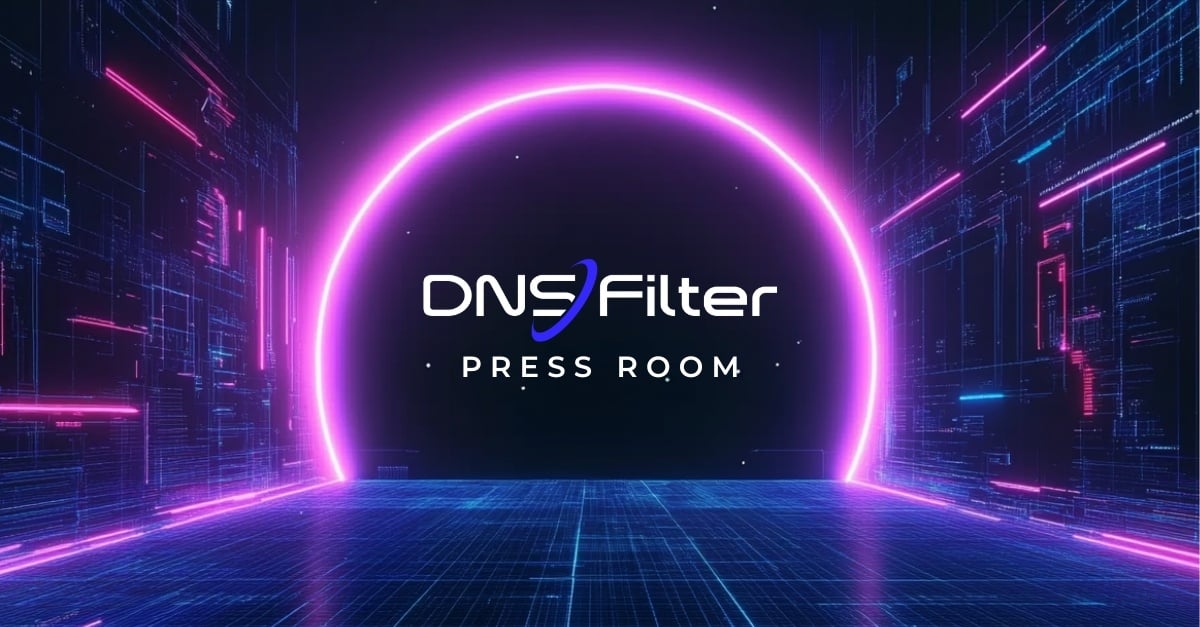DNSFilter Press Room
As Traffic to Threat Websites Continues to Rise, Don’t Overlook the Importance of DNS
At the scale of the Internet, threats are relentless. Domain Name System (DNS) technology is over 40 years old, but it remains just as relevant today—if not more so—to help organizations stay secure from malicious threats. What most people don’t know is that more than 70% of attacks involve the DNS layer.

DNSFILTER IN THE NEWS
Malicious Plays: Network Security Challenges During Major Sports EventsCybersecurity Insiders
Recruiting Innovations to Overcome the Cybersecurity Skills GapMSSPAlert
AiThority Insights: Weekly Trends Shaping the AI Industry for the Week Ending March 21stAIThority
As Traffic to Threat Websites Continues to Rise, Don't Overlook the Importance of DNSThe Fast Mode
Scammers using AI to create fake IRS sites. Here's other scams to watch out for.CBS Philadelphia
From Weakest Link to Strongest Defense: Building a Human-Centric Cybersecurity ApproachDice.com
Super Bowl Sunday Saw a 57% Rise in Malicious Gambling ContentSecurity Magazine
Part 2: TK Keanini featured in ITPro Today Cybersecurity Trends and Predictions 2025IT Pro Today
Part 1: TK Keanini featured in ITPro Today Cybersecurity Trends and Predictions 2025IT Pro Today
How Can MSPs Build a Future-ready IT Workforce?The ChannelPro Network
A Blueprint For Securely Implementing An AI StrategyForbes
DNSFilter Named to Four of Built In's Best Places to Work in 2025 ListsBuilt In
DNSFilter Achieves Remarkable Growth in Channel PartnershipsInvestors Hangout
DNSFilter 2025 Predictions: Cybersecurity in 2025 - Four Predictions on What's Needed to Stay Secure VMblog.com
DNSFilter's Richie Wade on IT Business PodcastIT Business Podcast
DNSFilter Named to 2024 Best Tech Startups in Washington, D.C. ListThe Tech Tribune
Bulwark Announces Strategic Partnership with DNSFilter to Enhance Cybersecurity SolutionsCXO DX
DNSFilter CEO on the Business of Tech PodcastMSP Radio
Cybersecurity Tools Are Too Complicated. Here's Why That's a Problem.Built In
Scary Security Stats: Roundup from 2024 Research VMblog.com
DNSFilter Chief Data Scientist: Where we're going, we don't need (negative) labelsGitHub
Back to Basics: Why DNS is still foundational even as technology evolvesSecurity Magazine
National Cybersecurity Awareness Month 2024: Industry Experts Share Their Thoughts VMblog.com
DNSFilter CEO Named Tech Titan in WashingtonianWashingtonian
The Human Behind The Machine: Addressing Phishing Starts With PeopleForbes
From Amenity to Vulnerability: Tackling Wi-Fi Risks in HospitalityHospitality Technology
How to Manage the Rising Tide of CVEsCybersecurity Dive
Cyber Defense Magazine Innovator Spotlight: DNSFilterCyber Defense Magazine
Forbes Feature: 60 AI Upstarts Reshaping TechForbes
Blocking Billions to Secure the Internet | A DNSFilter Story with TK KeaniniITSP Magazine


